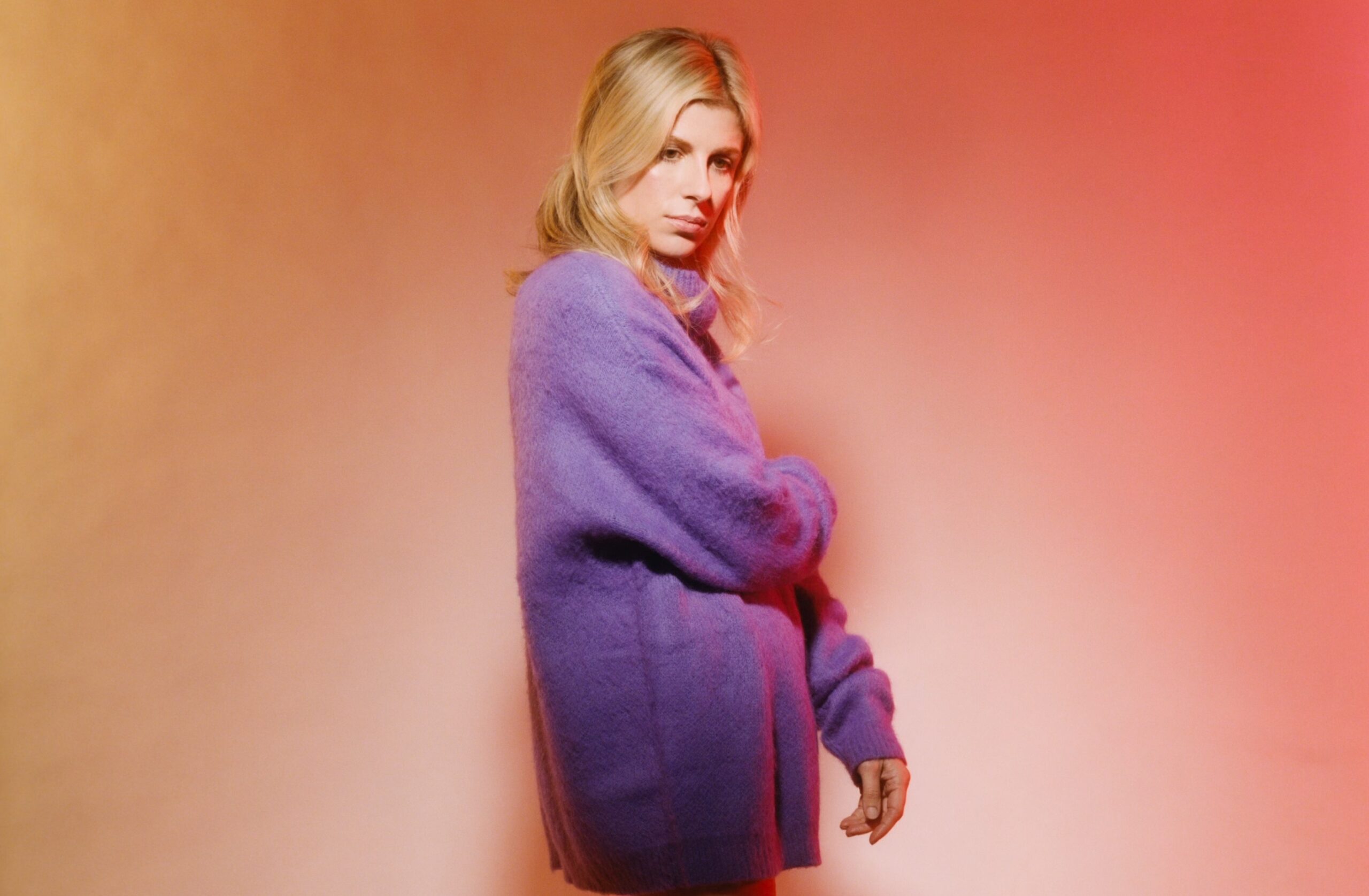
Jessie Baylin has been on the periphery of fame for more than half her life. At 19, she had the “it” factor as a singer-songwriter in L.A. A publishing deal with Sony, an audience with famous musicians like Justin Timberlake and John Mayer. At 22, she was engaged to a drummer, Nathan Followill, who she met at a music festival. At 25, they were married the same year his band, Kings of Leon, were conquering arenas around the world on the strength of hits like “Sex on Fire” and “Use Somebody.”
In 2018, Baylin’s primary songwriting partner and producer Richard Swift died, which was a blow to the Nashville music community, as Swift was one of those peripatetic forces. He had ties to the Black Keys, the Arcs, the Shins, and more. But for Baylin, Swift was her musical lifeline, the person who embraced her “Dusty on quaaludes” persona. The person who taught her how to write a song. And now he was gone.
“I was just like, ‘Maybe I should just let the dream die,’” Baylin says over Zoom from her pristine kitchen counter. The house she shares with her family is a literal treehouse, sitting three stories above the ground in a canopy of trees in Nashville. It’s plain to see how easy it could be to gaslight yourself in a beautiful home like that. What do you have to complain about? You’re married to a famous rock star. You have two beautiful kids. Your life is a dream. Baylin’s blond hair is pulled back and she’s wearing a Stevie Nicks t-shirt. And no one has described the silent pain of creative repression better than Nicks did when she sang, “the dream keeps coming even when you forget to feel.”
With the help of her closest friends, Baylin wrote through the dark and came out with Jersey Girl, a nod to her hometown roots and her first album in seven years — and by every measure, her best. It is melodic and wise. Retro, realized, poetic. But what is maybe the most remarkable is how close it was to not existing. Baylin spoke to SPIN about that journey, just weeks before her debut late-night performance on the Late Late Show and before heading out on tour.
[embedded content][embedded content]
SPIN: Your last studio album, Dark Place, came out in 2015. How did you get back into songwriting?
Jessie Baylin: Well, I was sort of tricked into it. My friend [producer] Daniel Tashian, who produced the album. Our kids are around the same age. So we do our school drop-offs about the same time, and he’d call me he’s like, ‘Baylin come over, I’m making tea.’ And those tea sessions turned into an album. I realized during those tea sessions I had to write myself back into my life. And I thought, gosh, if I can find [myself] on the page, maybe then I could live that life again.
When you say you had to be tricked, is that because it was hard for you to take time for yourself?
Absolutely. I mean, I have a husband who has a very demanding career, right? Small children. I’m a caregiver by nature. I want to feed my family, both, literally and emotionally. I like that space, it fills my cup. What I’ve realized is that I also need to feed myself in the creative realm, because that’s when I’m at my best in all those parts of me. When I started writing this album I was a hologram of myself, to be honest. I had lost who I was. My life was an abyss for a minute.
Do you feel more pressure or, maybe, resistance to putting an album out in your 30s as opposed to your 20s?
I have to be honest. At the beginning of this process, I was like, ‘What the hell am I doing?’ but now I’m like, ‘This is wonderful.’ I feel so much better about this today than I did back a decade and longer ago. I’ve done the work. Now I get to live it and that feels good. And again, my only expectation was to get [this album] into the world. Anything past that is a thrill. I like to keep the expectations low because that’s what I’ve learned is a good way of operating in this business.
On the other hand, you worked on Burt Bacharach’s 2020 EP Blue Umbrella, which he did with Daniel Tashian. What was that like?
Just to be in a room with Burt felt pretty powerful. He knows exactly what he wants — it’s almost alarming. [Laughs.] You know, he’s in his 90s. I just wanted to make him happy. But it ended up being so beautiful. He’d want a change that no one else would notice. And it was so small, like ‘I need you to breathe here instead of there.’ And it made such a difference in the flow of the melody. I was shaking in my boots and thrilled all at once.
[embedded content][embedded content]
What is your relationship with social media as a musician who isn’t new, so to speak, but is re-introducing herself?
That’s the hardest part of the job in 2022. When I released my last album, Dark Place, over seven years ago, Spotify was barely a thing. There are lots of things like that I’m not used to. And also dealing with people who are like, ‘well, she’s basically a new artist.’ I’ve come up against that a few times, which is just like, ouch. But I also try to look at artists that I adore, friends that are artists that are having to promote, market — do all the things. And I’m like, ‘have I offended anyone?’ ‘Have I over-posted?’ I’m trying not to take it too seriously. But it’s definitely a challenge.
In the early 2000s, you were this buzzy singer-songwriter in L.A. Was there a downside to having the industry “machine” behind you?
I just was green. I did not know what I was doing yet. Everything was moving fast. I had these opportunities and I’m like, ‘I don’t even know who I am as an artist yet.’ I owe so much to John Mayer. He was a mentor and so influential in teaching me about the craft of songwriting. I remember he gave me my first pair of good microphones, so I didn’t have to sing into a really dirty, dented one at the clubs in L.A. I made a record with my friend Jesse Harris and we had the most insane band — I had [Jim] Keltner, Lee Sklar — like the best band on the planet playing with me. Van Dyke Parks was suddenly there playing accordion.
My God.
That record was never released. Because again [Pauses] unfortunately, I just hadn’t found me yet. And then, you know, I went to Bonnaroo with my friend from high school because his band was playing. And there I met my husband. And then I was a child bride.
How old were you when you got married?
I was married at 25. But I was engaged at 22.
So just when you were embarking on this incredibly promising solo career, you had also just married into the biggest rock band in the world at the time. What was it like to be wrapped up in that craziness while also finding your voice?
Well, it was all happening. I think I was just quietly fine-tuning who I wanted to be. I was asking myself, “Can I have it all? Can I find balance? Can I have the things that I want out of life?” A happy home, a family — those things that matter to me the most — but also explore the artistic realm? I didn’t know. And if you asked me three years ago, I would’ve said “no, you can’t have both.” [Pauses.] But today, I do believe you can have more.
Your music took off when you met [producer] Richard Swift, who produced your albums Little Spark and Dark Place. What about his style complemented yours?
You know, I’ve reconnected with my publisher who’s now retired. And she was like, ‘Jessie, you’ve always written this way — and you drove me crazy.’ Meaning, I like to kind of go and live and collect material. And then I put it all together in my songs. That’s how I worked with Richard. We’re together for five days. And we’re gonna write nine songs. Once we had a line, we were cruising. I don’t like to edit too much or feel edited. I prefer to let things flow, and Richard was the same. Richard would always say ‘2 E, Z’ as in “too easy.” It was his way of saying we need to flesh something out, because, I mean, we were writing songs in 20 minutes. He’s like, ‘it’s all there.’ It’s only when you start getting in your own way that it becomes really hard. And I take that with me.
If you know one of your songs is “2 E Z,” do you have any tricks of dialing up the complexity?
Yes, so for example, I’ll read the verses like it’s a story and I’ll ask [myself] is that enough? Can it be more engaging? Can we bring more color into this? Writing the children’s album [Strawberry Wind] cracked me open in that sense. The way children engage with what’s happening around them is so tactile — the colors, the taste, the smells, the feel. And it turns out, that’s how adults connect, too.
Is there a lyric or concept on Jersey Girl that came out of that practice?
There’s one I like on “Cloud Nine” that goes, “Empty all your pockets, because a kiss is all you need.” At first, I was like, that is so embarrassing. But Daniel was like, are you kidding? Thank God he didn’t allow me to pull that and make it something else. Because that’s just what I wanted to say. It felt like this dreamland where these lonely people have been set free to just love again. And I mean, that’s my place in the world right now.
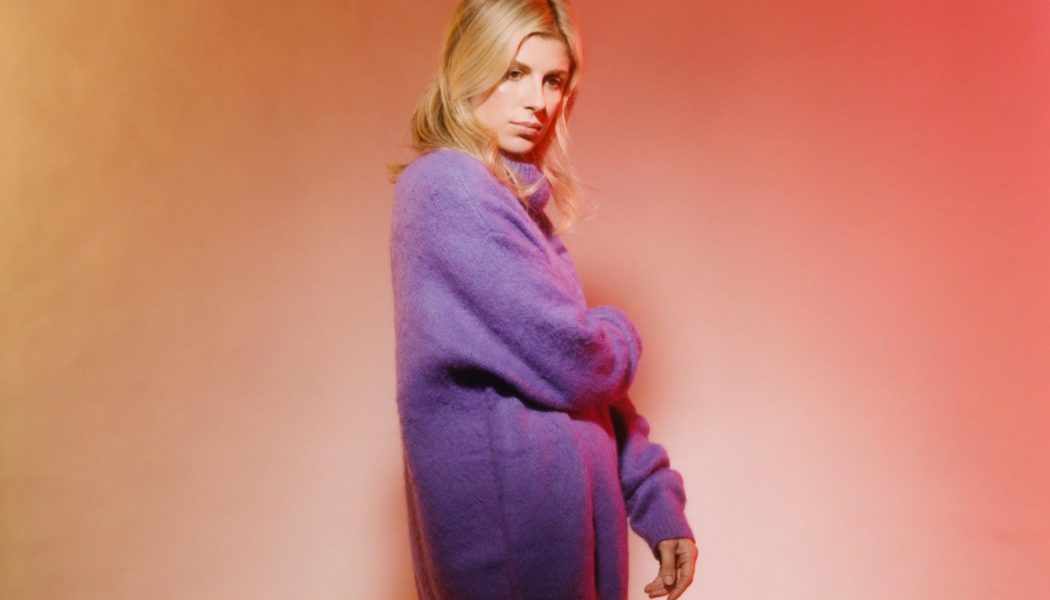

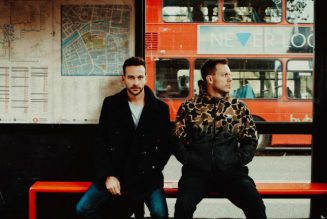
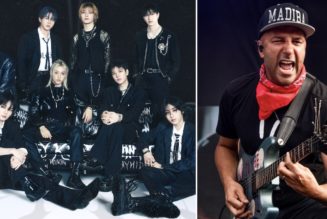
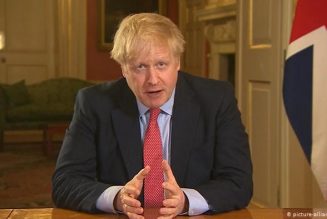
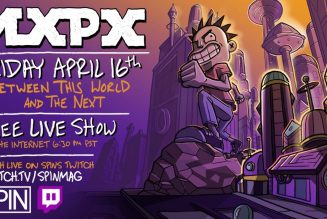
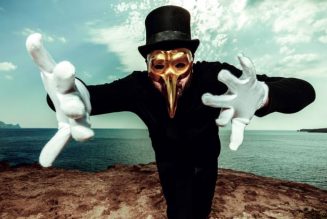
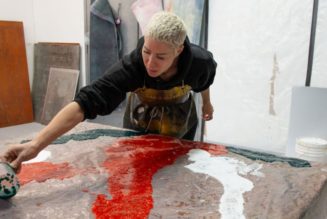
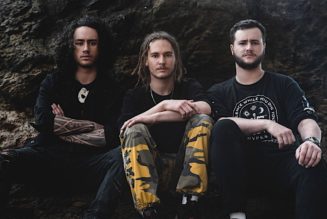
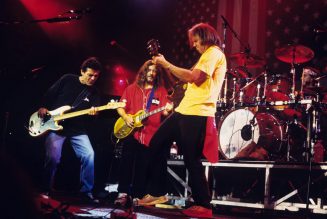
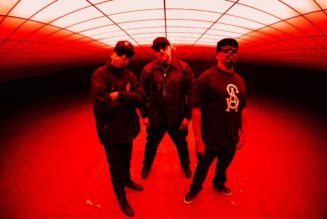
Tagged: INTERVIEWS, jessie baylin